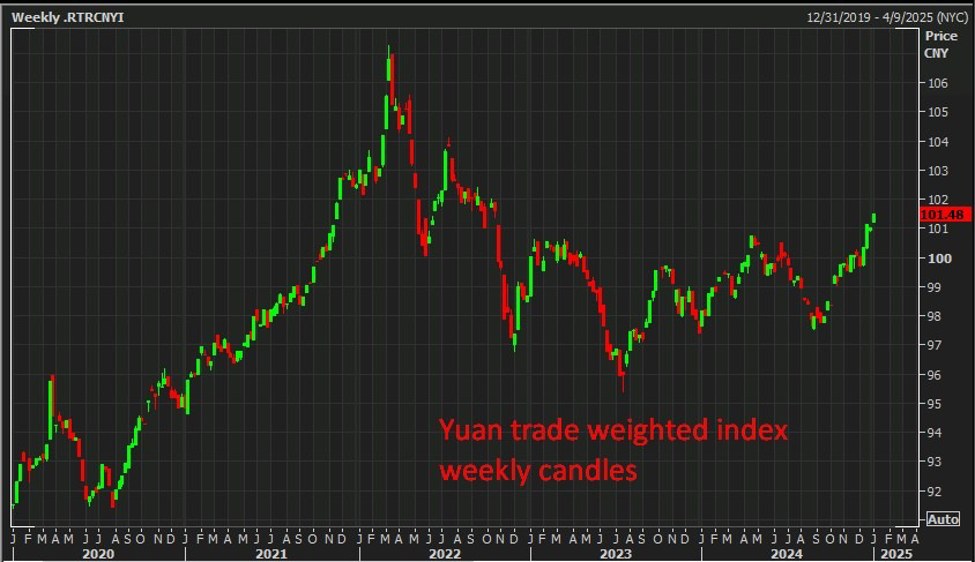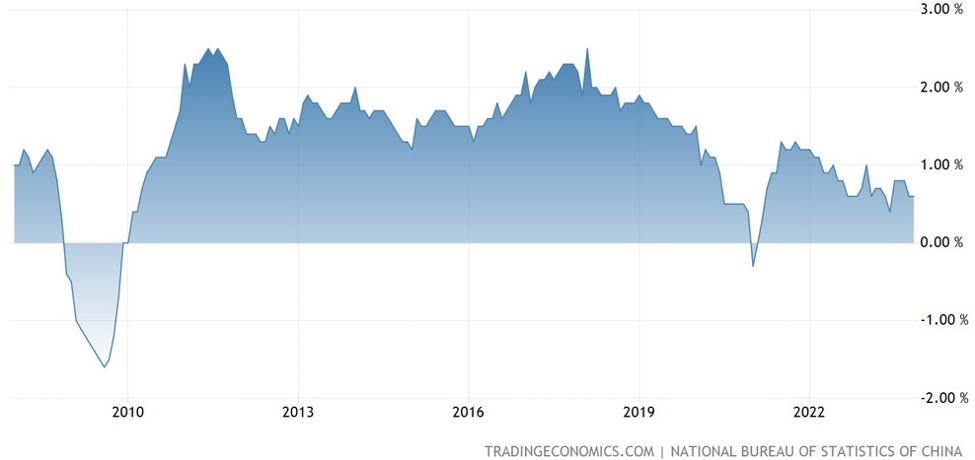The CFETS RMB Index (often referred to as the “yuan CFETS Index”) is a trade-weighted currency index published by the China Foreign Exchange Trade System (CFETS). It measures the value of the Chinese yuan (CNY) against a basket of currencies from China’s major trading partners.
While the USD is appreciating globally, weakening the yuan in the USD-CNY pair, other currencies in the basket (like the euro or yen) are depreciating more sharply than the yuan. Thus the yuan will appear stronger relative to the basket as a whole than it is against the USD.
-
Purpose:
- The index provides a more comprehensive view of the yuan’s exchange rate performance relative to multiple currencies, rather than focusing solely on the U.S. dollar.
- It reflects China’s efforts to promote a broader and more balanced understanding of the yuan’s value.
-
Currency Basket:
- The index is calculated based on a basket of currencies representing China’s key trading partners.
- The weights assigned to each currency are determined by their share of China’s trade, ensuring the index reflects the importance of each partner in China’s foreign trade.
-
Adjustments:
- CFETS regularly reviews and updates the composition and weights of the currency basket to reflect changes in trade patterns and economic conditions.
-
Usage:
- The index is used as a benchmark for the yuan’s relative performance and to guide expectations about China’s currency policy.
- It aids policymakers, analysts, and traders in assessing the yuan’s stability and competitiveness in global trade.
Distinction from USD-CNY Exchange Rate:
While the USD-CNY exchange rate is a bilateral measure showing the yuan’s value against the U.S. dollar, the CFETS RMB Index offers a multilateral perspective, accounting for the yuan’s movements against a broader set of currencies. This makes it a more holistic measure of the yuan’s overall strength or weakness.
***
As a ps. CFETS functions as an operational arm of the PBOC, executing and facilitating the central bank’s foreign exchange policies, while also serving as a hub for yuan trading and market transparency. It plays a key role in supporting China’s exchange rate regime and monetary policy objectives.















